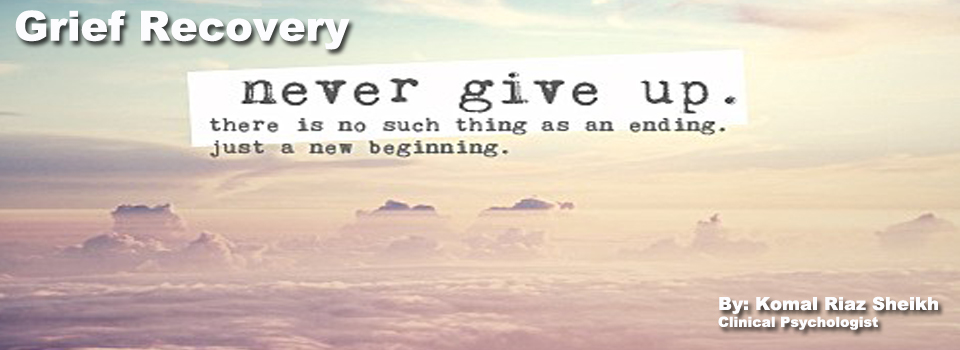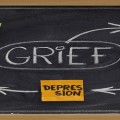
The below article was written by Darci Sims, a bereaved parent and child, a grief management specialist, a nationally certified thanatologist, a certified pastoral bereavement specialist, and a licensed psychotherapist and hypnotherapist. I have always challenged the The Stages of Grief, arguing that they do not apply to those who have tragically lost a loved one. Darci, challenges the way we view grief in the article below.
The New Language of Grief
~ By Darci Sims, Ph.D., CGC, CHT (adapted)
There are many different schemes and ways to look at the grief process. Some talk stages while others outline steps to be taken or tasks to be completed. I like to think of grief as a journey. However grief looks to you, it is important to understand that grief is not a sign of weakness nor lack of faith. Grief is the price we pay for love.
Much has been written about grief and has added to our knowledge. Some has added to our confusion! Many still confuse the work of Dr. Elisabeth Kübler-Ross with that of other professionals such as Colin Murray Parkes, Erick Lindemann, and William Worden. Kübler-Ross wrote of patients coping with dying while Parkes, Lindemann, Worden and others wrote of the grieving process which occurs following the death of a loved one. The difference between the two bodies of knowledge is significant, although many do not realize the “Stages of Adaptation” that Kübler-Ross identified do not necessarily apply to the experiences of the bereaved.
The work of Worden, Lindemann, Parkes and others clearly distinguished between adaptation to impending change and the responses experienced following a death. Yet today we still find the bereaved trying to fit their grief into a scheme that makes little sense to them. It is time we find a new language – a language that clearly defines the grief experience as we know it and one that gives us hope instead of tasks to complete or stages upon which to play.
When we first become aware of our loss, we may become numb. The literature refers to this as shock. Shock is a physiological phenomenon which protects us from further pain. When our circuits become overloaded, we cannot accept further pain. When our circuits become overloaded, we cannot accept further information. Our numbness protects us from the reality of death. Our responses become mechanical. Decisions are made, actions are taken and events pass, all without our full participation. Shock is what helps us get through the necessary details of death. Our numbness can last anywhere from a few moments to several months.
When we are faced with difficult steps on our journey, we sometimes wish to postpone our progress. We want to side-step the pain. Perhaps we are not yet ready to deal with reality or perhaps we feel afraid, unsupported, unskilled or unprepared to face the unfolding of a new life. “I won’t deal with it”, “I can’t cope with it!”, “I don’t want to face it!”. Words that each of us has echoed again and again.
Instead of facing our grief, we postpone reality for a little while. It is easier to pretend that our loved one is away at camp or on a business trip instead of facing the bitter reality of death. And yet I know what it is that I am pretending. How could I forget?
Perhaps we could replace the word “denial” with the word “postponement”. It accurately describes what we do with a reality we are not quite ready to experience. We simply postpone that part of our journey until we feel ready to tackle the new reality.
Denial is not a lack of coping, but rather an accurate and creative way of postponing, until we feel more secure, more skilled, more supported. It takes a lot of energy to postpone reality for very long and so, eventually, most of us run out of energy to keep things in fantasy land. Slowly we move toward painful reality and begin the healing process of coping. When we feel ready, we will move from postponement to acknowledgment and then to action, in our own time.
Our journey toward awareness and acknowledgment hurts. Every part of us hurts. There’s tightness in the throat, a searing pain in the chest, a heaviness in the heart. It hurts to move. It hurts to breathe. It hurts just to be! Sometimes the pain is so intense we may develop physical symptoms. Sleep irregularities, changes in appetite and gastrointestinal disturbances are common. Heartache, restlessness, muscle tension and sighing may occur.
Anger and guilt are common emotions. You may feel angry with God, your spouse, your children or with others, either involved or totally separate from the death. You may be angry with yourself. You may want to withdraw and be left alone. Anger and guilt may be revisited many times.
Depression and feelings of emptiness or hollowness may temporarily overcome you. You may become preoccupied with images of your loved one. You may “see” or sense your loved one’s presence. You may begin to wonder if you are going crazy.
As long as we are changing the language, I’d like to replace “acceptance” with “acknowledgment”. Acceptance, to me, means agree with, and I will never agree with what has happened! But I can work towards acknowledgment of what happened. As I begin to feel safe, more supported, more knowledgeable about the grief process and feel more skilled at grieving, I can allow whatever I have cast into postponement to resurface and begin then to resolve my grief.
I want to change one more word in the language of grief. Let’s get rid of the word “recovery” and use “healing” instead. Recovery is a medical model word, designed to describe broken bones, not hearts. We recover from a broken arm or the chicken pox. We don’t get over the death of someone we love. We get through it, one moment, one hour, one day, one hurt at a time. Healing is a hopeful word.
Healing doesn’t happen all at once, nor does a language get changed quickly. Healing is a matter of choice. It begins to occur when we learn to reinvest our energies, emotions and love rather than replace them. We will always love the person who has died and we will continue to have a relationship with them for the rest of our lives. We do not stop loving someone just because they die!
You know you’re making progress when you fully understand that putting your loved one’s things away does not mean you are forgetting him or her. You do not have to say goodbye. Our loved one died, but the love we share between us can never be destroyed.
The words we speak dictate our journey. Yet it seems more hopeful to speak of postponement instead of denial, acknowledgment instead of acceptance, and healing instead of recovery. We are diminished by grief, replenished by love, held by hope.
I want a language that reflects that hope, a language that reminds me of joy remembered, of love given and received, of life lived, not lost. May love be what you remember the most.
~ Reprinted and adapted from Comforting Friends, January 2008, Vol. XI, Issue 1.


